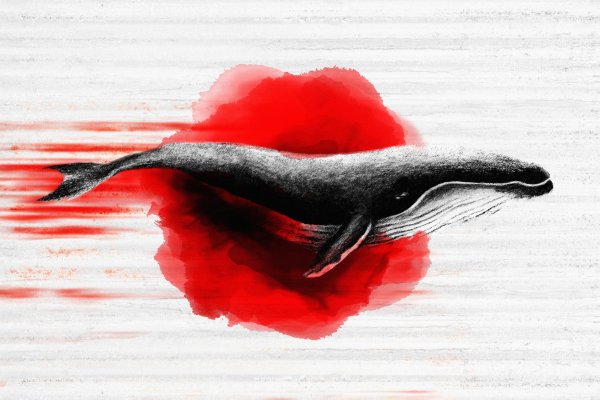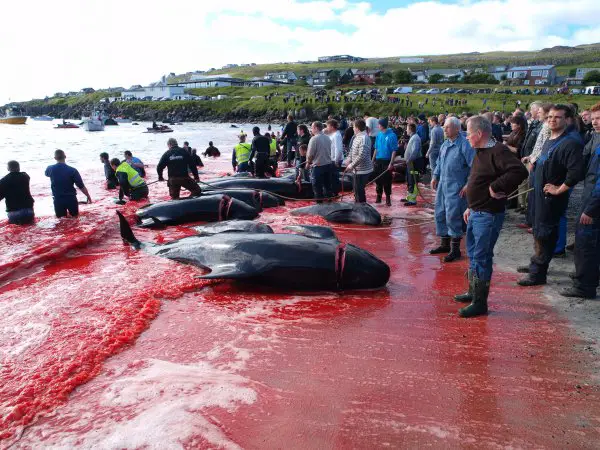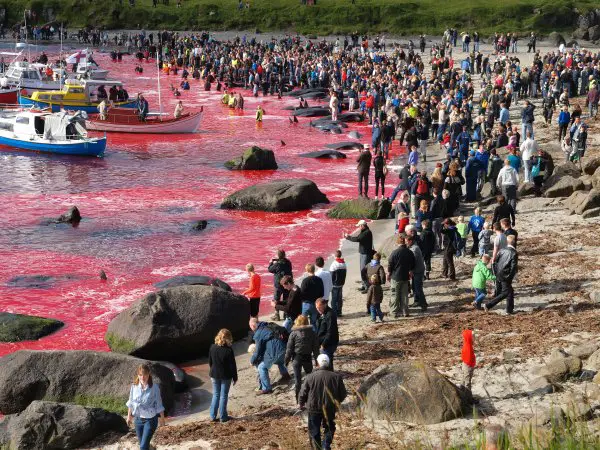Japan Will Restart Commercial Whale Hunting In 2019 After 30 Years
Tags: opinion

By Mayukh Saha
First of all, let’s begin the discussion on why we do need whales and other large cetaceans in the world’s seas:
Just like the presence of large mammals such as elephants and rhinos shows the abundance of food and sustainability of current practices in land ecosystems, the presence of large cetaceans ensures the health and prosperity of the world’s oceans. Why? Because thanks to those deep divers, a lot of mineral-rich cold water reaches the surface, which thereby ensures the survival of plant plankton, the largest source of oxygen in the world. This also creates vertical currents of water thereby regulating oceanic temperatures. Moreover, their skeletons are humongous and extremely rich in carbon, which when they die, sinks to the bottom of the ocean carrying a lot of carbon with it down there, away from the atmosphere.
And like most niche apex predators such as lions, sharks and tigers, their survival helps the survival of their prey, which would otherwise die of population explosion.
Their numbers have already been irretrievably low, with an estimate suggesting that whale numbers wouldn’t reach half of the pre-whaling figure by 2100, despite conservation efforts.
In the midst of all this, Japan, which was part of IWC (International Whaling Commission), the main whaling prevention body, has decided to restart commercial whaling from July 2019.
 THORSHAVN, FAROE ISLANDS – JULY 23, 2010: 108 Long-finned pilot whales are beached and killed. On Faroe Islands people have been eating the meat and blubber from pilot whales for centuries
THORSHAVN, FAROE ISLANDS – JULY 23, 2010: 108 Long-finned pilot whales are beached and killed. On Faroe Islands people have been eating the meat and blubber from pilot whales for centuries
For fifty years now, whaling has still been practiced by Japan, on the pretext of ‘scientific research.’
Despite IWC’s banning of commercial whaling in 1986, Japan used ‘scientific research’ as a cover story to sell the meat of whales like minke whales, consumption of which has been a tradition of the island country.
After the announcement on Wednesday, many conservationists from many countries have threatened dire consequences.
The details of the move
Japan through its spokesperson, Yoshihide Suga, has accused IWC of not fulfilling one of its initial goals i.e sustainable commercial whaling; instead, it is concentrating only on increasing the whale numbers.
It has, however, said that it will restrict its hunting to territorial waters and economic zones and not go on its controversial Antarctic expedition.
Ironically, despite the hike in consumption after World War II, because of easy availability and a shortage of other meats, whale meats (from the Asahi) now make up only 0.1% of Japan’s meat consumption.
Over 5000 people have downloaded our free ebook “Growth Hacking Tips And Rituals For Optimal Living” CLICK HERE to get your free copy now
Australia’s Foreign and Environment ministers, Marise Payne and Melissa Price, have issued a joint statement stating that they were heavily disappointed.
Greenpeace Japan cited that the government would face heavy criticism as G20 summit is going to be hosted in their country, if it moved on with this decision.
The current IWC ban had initially agreed to create a commercially viable and smaller catch quota, which would let the numbers rise, but later it totally banned whaling.
Japan had been masking commercial whaling as scientific research for years under a special exception rule of the IWC.
As a result, whaling nations like Norway, Iceland, and Japan have always cited their countries’ traditions while protesting said ban.
Nowadays, despite most species being endangered almost beyond hope, many whale species like the minke, which is Japan’s main target, have significantly thrived above the endangered quota, thanks to IWC’s ban.
 THORSHAVN, FAROE ISLANDS – JULY 23, 2010: 108 Long-finned pilot whales are beached and killed. On Faroe Islands people have been eating the meat and blubber from pilot whales for centuries
THORSHAVN, FAROE ISLANDS – JULY 23, 2010: 108 Long-finned pilot whales are beached and killed. On Faroe Islands people have been eating the meat and blubber from pilot whales for centuries
Japan will still be under scrutiny from many organisations like the UN, which has the Convention on the Law of the Sea. It can, however, join NAMMCO, the North Atlantic Marine Mammal Commission, which was born when Iceland, Norway, Faeroe Islands and Greenland were being thwarted by the IWC again and again.
Japan has, for the last thirty years, caught around 200-1200 whales per year under the pretext of monitoring stocks and investigating which species had recovered from the endangered status.
Ironic, no?
Even till September, in the IWC convention in Brazil, Japan tried to secure a quota for sustainable commercial whaling and also promised to set up a committee for sustainable whaling for “abundant whale stocks/species.”
Since this last thwarting, there has been talk of Japan leaving.
The future is dark my friends, especially because this move might give an incentive to other pro-whaling IWC members to just quit and hunt unless someone steps up to the plate.
IMAGE CREDIT: Sergio Lacueva
Leave Comment: